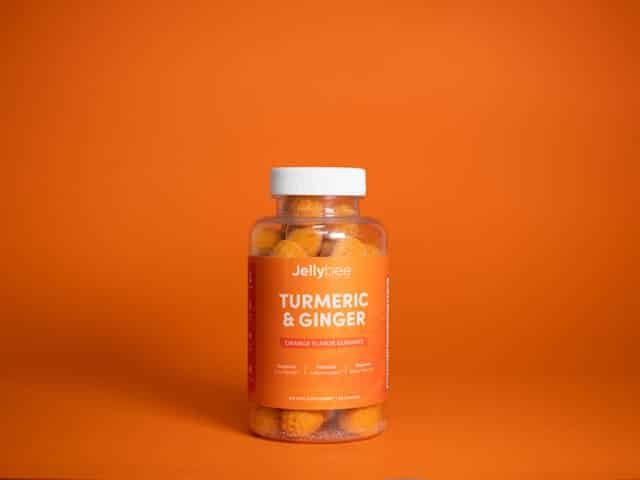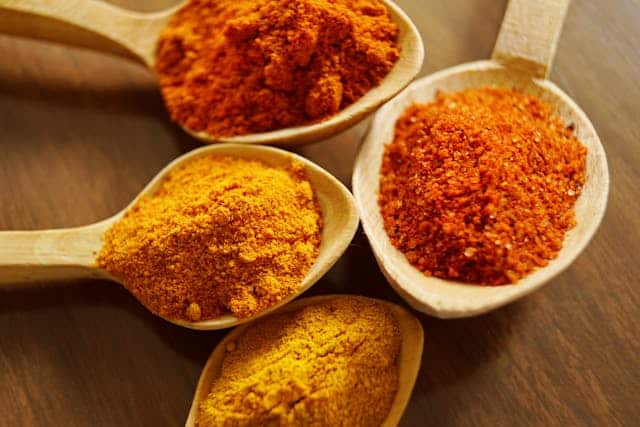Turmeric has surged in popularity, with many praising its benefits on social media.
However, this powerful root has been a staple in Ayurvedic and Chinese medicine for thousands of years, known for aiding digestion and reducing inflammation.
Here’s a closer look at how regular turmeric consumption may impact your body.

1. Reducing Inflammation
Short-term inflammation is a normal part of the body’s healing process, but chronic inflammation can contribute to long-term health issues. Curcumin contains curcuminoids, compounds that help reduce inflammation by blocking pathways responsible for inflammatory responses. Additionally, its antioxidant properties help neutralize free radicals that can damage cells and tissues.

2. Boosting Memory
A 2006 study found that Asian populations who consumed turmeric regularly performed better on cognitive tests. Another 2018 study discovered that individuals aged 51 to 84 who took 90 mg of curcumin twice daily experienced improved memory compared to those on a placebo. Researchers suggest that curcumin’s anti-inflammatory properties may help protect the brain from memory-related diseases, though more research is needed.

3. Relieving Joint Pain
Thanks to its anti-inflammatory and antioxidant effects, curcumin may help alleviate joint pain. In people with arthritis, certain inflammatory pathways—such as TNF-α and COX-2—are overactive. Curcumin inhibits these pathways, potentially reducing stiffness and discomfort. Some studies indicate that turmeric supplements can be as effective as certain non-steroidal anti-inflammatory drugs (NSAIDs) but without common side effects like dizziness, drowsiness, or indigestion.

4. Affecting Cancer Cells
A 2015 study suggested that curcumin might slow the growth of certain cancer cells. While these findings were based on laboratory studies, researchers noted curcumin’s potential to inhibit tumor activity in digestive and skin cancers. Although promising, more clinical studies are needed to confirm its effects on humans.

5. Supporting Heart Health
Curcumin may contribute to better heart health by reducing oxidative stress, systemic inflammation, and LDL cholesterol. It also improves endothelial function, which plays a key role in circulation and blood vessel health. Some studies suggest that turmeric supplements can help lower systolic blood pressure after three months of consistent use, though effects on diastolic pressure remain unclear.

6. Alleviating Hay Fever Symptoms
For those who suffer from seasonal allergies, turmeric may offer relief. Research suggests that curcumin’s anti-inflammatory and antioxidant properties help reduce symptoms like sneezing and nasal congestion. A 2008 animal study found that curcumin inhibited histamine release, leading to a significant reduction in hay fever symptoms.

7. Improving Digestive Health
Turmeric’s anti-inflammatory properties may benefit the gut by reducing inflammation associated with conditions like irritable bowel syndrome (IBS) and inflammatory bowel disease (IBD). Additionally, curcumin may help balance gut bacteria by reducing harmful microbes and promoting beneficial ones. It also supports bile production, which aids digestion and fat metabolism.

8. Easing Symptoms of Depression
A small study found that individuals with major depressive disorder experienced some improvements when taking curcumin alongside their prescribed antidepressants. While no adverse effects were reported, the study lasted only six weeks—too short to draw definitive conclusions. Further research is needed to determine curcumin’s long-term impact on mental health.

9. Enhancing Brain Function
Chronic inflammation and oxidative stress are linked to neurodegenerative diseases like Alzheimer’s. Some studies suggest that curcumin may help protect cognitive function by reducing these risk factors. While the initial findings are promising, long-term studies are required to fully understand turmeric’s role in brain health.

10. Supporting Liver Function
Curcumin supplements may benefit individuals with non-alcoholic fatty liver disease (NAFLD), a condition where excess fat accumulates in the liver due to factors other than alcohol consumption. According to research, curcumin’s anti-inflammatory and antioxidant properties could help improve liver function and reduce fat buildup.
While turmeric offers a range of potential health benefits, its effects may vary depending on the individual. Consulting a healthcare professional before adding turmeric supplements to your routine is always recommended.
